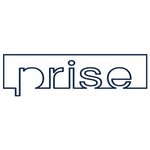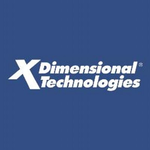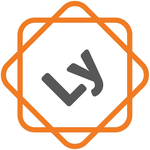Description

OneShield Policy

AISUS
Comprehensive Overview: OneShield Policy vs AISUS
OneShield Policy and AISUS are both software solutions used in the insurance industry, but they serve slightly different functions and target different markets.
a) Primary Functions and Target Markets:
OneShield Policy:
- Primary Functions: OneShield Policy is a comprehensive policy management platform designed to automate and streamline the entire policy lifecycle process, from quoting and underwriting to policy issuance and administration. It offers robust features for product configuration, rating and quoting, billing, claims management, and reporting. The system is highly customizable, making it suitable for various lines of business.
- Target Markets: OneShield Policy primarily targets insurance carriers, managing general agents (MGAs), and large insurers. Its flexibility makes it ideal for property and casualty (P&C) insurers, as well as life and health insurers that are looking to modernize their policy administration systems.
AISUS:
- Primary Functions: AISUS specializes in providing tailored insurance software solutions with a focus on policy administration, claims processing, and compliance management. The platform aims to simplify the management of policies and claims while ensuring regulatory compliance.
- Target Markets: AISUS targets smaller to mid-sized insurance companies and MGAs looking for cost-effective and efficient solutions for both personal and commercial lines of insurance. It’s often favored by insurers who want a straightforward, user-friendly system that can be quickly deployed.
b) Market Share and User Base:
OneShield Policy:
- OneShield has a significant presence in the insurance technology market, particularly among larger insurers seeking comprehensive system transformations. It has a solid market share among the top-tier P&C insurers due to its ability to handle complex and diverse insurance products.
- The user base often consists of large-scale insurers and MGAs, and it has been expanding globally, with clients in North America, Europe, and Asia-Pacific regions.
AISUS:
- AISUS has a smaller market share compared to OneShield, given its focus on smaller and mid-sized insurers. It is more prevalent in niche markets and among domestic insurers who prefer a shorter implementation timeframe and a more straightforward solution.
- Its user base is narrower but loyal, largely made up of insurers who operate in specific sectors or offer specialized products.
c) Key Differentiating Factors:
-
Complexity and Customization:
- OneShield Policy: Known for its high level of customization, it offers extensive features that can be tailored to meet the needs of diverse insurers. It supports complex insurance products and business processes, making it suitable for large insurers with complex needs.
- AISUS: Offers a more standardized solution with essential customization options, ensuring ease of use and faster implementation. It is better suited for insurers who need a straightforward system without extensive customization.
-
Scalability:
- OneShield Policy: Designed for scalability to accommodate the needs of large insurers with significant transaction volumes and diverse product lines.
- AISUS: While scalable, it is generally better suited for small to mid-sized companies with less complex needs.
-
Implementation and Cost:
- OneShield Policy: The implementation process can be longer and more resource-intensive, given the depth of customization available. As a result, it may come with higher costs.
- AISUS: Typically offers a quicker implementation timeline with lower costs, appealing to smaller insurers with tighter budgets.
In summary, OneShield Policy is favored by large insurers with complex and diverse needs, offering comprehensive and customizable solutions, while AISUS appeals to smaller insurers seeking cost-effective, user-friendly systems with essential functionalities.
Contact Info

Year founded :
Not Available
Not Available
Not Available
Not Available
Not Available

Year founded :
2013
+44 12 2422 2070
Not Available
United Kingdom
http://www.linkedin.com/company/aisus-offshore-ltd
Feature Similarity Breakdown: OneShield Policy, AISUS
As of my latest update, I don't have access to real-time or proprietary information about the specific internal features of OneShield Policy and AISUS, as this would typically require detailed product knowledge that might be available through vendor documentation, product comparison websites, or direct inquiries with the companies offering these solutions. However, I can offer a generalized framework for comparing typical features of insurance policy administration systems like OneShield Policy and AISUS.
a) Core Features in Common
Both OneShield Policy and AISUS, as policy administration systems, are likely to include several core features that are common across such platforms in the insurance industry:
- Policy Management: Tools to create, administer, and update insurance policies.
- Underwriting: Functions to assess and manage the risks associated with insurance policies.
- Billing and Invoicing: Systems for managing customer billing, payments, and accounts.
- Claims Management: Features to process and manage insurance claims.
- Customer Relationship Management (CRM): Tools to manage interactions with current and prospective customers.
- Regulatory Compliance: Features ensuring compliance with industry regulations and standards.
- Document Management: Capabilities for storing, retrieving, and managing documents related to policies and claims.
- Reporting and Analytics: Tools for generating reports and analyzing data for insights and decision-making.
b) User Interface Comparison
While I don't have specific details about the user interfaces of OneShield Policy and AISUS, typical comparisons might consider:
- Usability: Intuitive design, ease of navigation, and accessibility across devices (desktop, tablet, mobile).
- Customization: Ability to tailor the interface to suit the specific needs of different users or departments within an insurance company.
- User Experience (UX): The overall experience of users in terms of functionality, speed, and responsiveness.
- Aesthetic Design: Visual appeal, including layout, color schemes, and overall design language.
c) Unique Features
Reliable identification of unique features would require specific product analysis; however, companies often differentiate their products by:
- Integration Capabilities: One product might offer superior integration with third-party software or other enterprise systems.
- AI and Automation: Advanced artificial intelligence features, such as predictive analytics or automated risk assessment tools, could be present in one but not the other.
- Specialized Modules: One might have specialized solutions for particular types of insurance, such as life, health, or auto insurance, granting it a niche advantage.
- Scalability and Flexibility: Differences in how each solution scales with business growth or adapts to changing business models.
- Customer Support and Service Options: Variations in the levels of support, including availability of dedicated support teams or online resources.
For the most accurate and updated information, it's recommended to directly consult with representatives from OneShield and AISUS or access detailed product literature or reviews to understand their unique selling propositions and user feedback.
Features

Not Available

Not Available
Best Fit Use Cases: OneShield Policy, AISUS
OneShield Policy and AISUS are both insurance software solutions, but they cater to different needs and business scenarios. Here's an outline of their best fit use cases:
a) For what types of businesses or projects is OneShield Policy the best choice?
OneShield Policy is a comprehensive policy management system designed for insurance companies. It is particularly well-suited for:
-
Large and Mid-Sized Insurance Companies:
- These companies can take full advantage of the extensive features that OneShield Policy offers. Its scalability allows it to handle a large volume of policies and complex product offerings.
-
Multi-Line Insurance Providers:
- Companies offering a range of insurance products (e.g., property and casualty, health, life) can benefit from OneShield Policy's flexibility in handling multiple product lines on a single platform.
-
Businesses Focusing on Operational Efficiency:
- The platform excels in automating processes, thus reducing manual tasks and operational costs. It supports streamlined policy administration, from quote to issuance to renewal.
-
Customization Needs:
- Insurance businesses that require significant customization can leverage OneShield's configuration capabilities to tailor products and workflows to specific business needs.
-
Regulatory and Compliance-Heavy Environments:
- Its features include comprehensive compliance management, which is crucial for insurance operations across different jurisdictions with varying regulatory requirements.
b) In what scenarios would AISUS be the preferred option?
AISUS (Automated Insurance System Underwriting Suite) is a specialized platform designed for niche and high-specialization areas within the insurance sector. It is best suited for:
-
Underwriting-Centric Operations:
- AISUS is particularly valuable for businesses where underwriting is a core focus. It streamlines the underwriting process, offering tools for data collection, analysis, and decision-making.
-
Specialty Insurance Providers:
- Companies dealing with non-standard or high-risk insurance products benefit from AISUS's capabilities to handle complex underwriting scenarios and tailor policies to unique risks.
-
Small to Mid-Sized Insurers:
- Ideal for insurers who need robust underwriting functionality without the overhead of a full policy administration suite like OneShield Policy.
-
Industries Requiring Detailed Risk Assessment:
- AISUS is optimal for sectors where precise risk assessment is crucial, such as construction, marine, aviation, and energy insurance.
d) How do these products cater to different industry verticals or company sizes?
Industry Verticals:
-
OneShield Policy caters to a broad range of verticals across the insurance industry due to its versatility and comprehensive feature set. It can adapt to different markets and regulatory environments, making it suitable for general insurers, life insurers, and even specialized providers wanting to expand their product offerings.
-
AISUS targets specific verticals where underwriting complexity and tailored risk assessment are paramount. It thrives in markets requiring specialized knowledge and detailed underwriting processes.
Company Sizes:
-
OneShield Policy is better suited for larger organizations with complex needs and the resources to implement and maintain a comprehensive policy management solution. However, mid-sized companies with expansive growth plans or complex product lines can also leverage its capabilities.
-
AISUS appeals mainly to smaller and mid-sized firms that prioritize underwriting efficiency and need a solution that enhances decision-making without the broader infrastructure requirements of a full-scale policy administration system.
In conclusion, the choice between OneShield Policy and AISUS largely depends on the specific needs of the insurance provider, focusing on their operational priorities, product complexity, and company scale.
Pricing

Pricing Not Available

Pricing Not Available
Metrics History
Metrics History
Comparing undefined across companies
Conclusion & Final Verdict: OneShield Policy vs AISUS
To provide a comprehensive conclusion and final verdict on OneShield Policy and AISUS, we need to evaluate both products in terms of features, performance, usability, pricing, support, and overall user satisfaction.
Conclusion
a) Best Overall Value
Considering all factors, OneShield Policy offers the best overall value for insurance companies looking for a comprehensive and scalable policy management system. It combines advanced features, a robust platform, and scalability, making it suitable for larger and more diverse insurance operations. While AISUS may be more cost-effective for smaller operations or those with highly specific needs, OneShield's broad functionality justifies any additional investment for most users.
b) Pros and Cons
OneShield Policy:
-
Pros:
- Comprehensive Feature Set: Offers a wide range of features that cater to various aspects of insurance policy management, including underwriting, billing, and claims processing.
- Scalability: Designed to support growth, making it ideal for larger companies or those anticipating expansion.
- Integration Capabilities: Strong integration with other systems, aiding in seamless operations across different platforms.
- User Support: Generally positive feedback on customer service and technical support.
-
Cons:
- Cost: The extensive feature set and capabilities come at a higher price point, which may be prohibitive for smaller businesses.
- Complexity: The robust system may require more intensive training and onboarding for new users.
AISUS:
-
Pros:
- Cost-Effective: Generally more affordable, making it attractive for smaller companies or start-ups.
- User-Friendly Interface: Known for its simple and intuitive interface, which can reduce the learning curve for new users.
- Specific Customization: Offers flexibility for users with very specific customization needs.
-
Cons:
- Limited Features: May lack some of the advanced functionalities found in more comprehensive systems like OneShield.
- Scalability Issues: Might not be as efficient for large-scale operations, limiting its use as a company grows.
- Integration Limitations: May require additional work for integration with other systems or platforms.
c) Recommendations
For users deciding between OneShield Policy and AISUS, the decision should be based on company size, budget, and specific needs:
-
For Larger Enterprises:
- Recommendation: OneShield Policy is the preferred choice due to its scalability, comprehensive features, and ability to handle complex processes. Although initially more expensive, its robust capabilities make it a worthwhile investment for long-term growth.
-
For Small to Medium-Sized Enterprises (SMEs):
- Recommendation: AISUS is recommended if budget constraints are paramount and the company requires an easy-to-implement solution with a more focused feature set.
-
For Start-Ups or Businesses with Specific Needs:
- Recommendation: AISUS may be preferable if initial costs must be minimized, or if the desired functionality aligns well with AISUS’s offerings without needing extensive scalability or integration.
Ultimately, the choice will depend on weighing these factors against your company’s unique needs and long-term strategic goals. It is advisable to conduct a trial period or pilot implementation where possible to better understand how each system can integrate into existing workflows.
Add to compare




